The Books I Read in 2022
 Alvaro Montoro
Alvaro Montoro
I doubted writing and publishing this article. I’m a Software Developer, not a Writer or a Critic, and I don’t think anyone will be interested in the books I read over the past twelve months. Many are not even modern, or the latest and greatest, primarily commercial, and some are for children or young adults.
Also, I usually write about technical stuff, and this list doesn’t include a single technical book that may interest my regular readers or fellow developers. Most of the technical reading I do is articles online. I started reading some technical books but never finished them.
This brings up an important point: the list only includes books I read in full. This means that a good number didn’t make it because I started them but did not finish them. This is not because they bored me or I didn’t like them. Sometimes it’s the circumstances, sometimes I forgot them at a friend’s house who’s reading them now, and sometimes it’s just that I’m still reading them but could not finish before the end of the year –talking about you, “Tomorrow, and Tomorrow, and Tomorrow”–. I didn’t include short books or comics (and there were many of those, too.)
I use the words “read” and “books” broadly. A third of them were audiobooks that I listened to while driving to pick up the kids or along with the kids while taking them to after-school activities. Another third was comics and graphic novels, which you usually don’t see in these lists.
Here are the books by categories, in the chronological order I read them.
Fiction
1. The One and Only Ivan by Katherine Applegate (2012). A children’s book to start the year with the kids. This sad/happy/inspirational tale is based on the real story of a gorilla who lived in a mall… from the gorilla’s point of view. I found it interesting even for more adult audiences.
2. The Princess Saves Herself in this One by Amanda Lovelace (2013). One of my goals this year was to read more poetry (spoiler alert: I failed), and this was a recommended title on different sites. While some poems were interesting, the book felt “meh” and not mature (again, I’m not a literary critic, so take this with a grain of salt.)
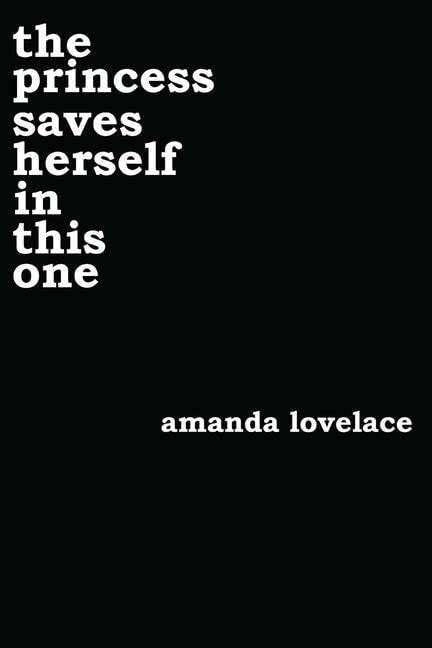
3. Beasts and Beauty by Soman Chainani (2021). This revisit of some of the classic tales fell flat for me. The stories could have been more profound and entertaining. I understand it is more of a young-adult book, but the stories didn’t offer much. Not even at that level.
4. The Lord of the Rings (complete series) by J. R. R. Tolkien (1954–55). I completed all three books of The Lord of the Rings: The Fellowship of the Ring, The Two Towers, and The Return of the King. Partly because I had never read them and partly because one of my kids wanted to watch the movies, and reading the books was a pre-condition. I found the books a bit slow but entertaining and a great plus if you enjoyed the films.
5. How to Find Love in a Bookshop by Veronica Henry (2016). This is a cute romantic story about a young woman that takes over her father’s bookshop after he passes away. The whole town comes around in a way only small towns can to tell a story about the shop, the clients, and their past. It is a sweet and easy read.
6. Olga Dies Dreaming by Xochitl Gonzalez (2022). It was an engaging read, although the main character didn’t fully click for me, and the ending felt awkward and off-place. I liked the style and the overall story.
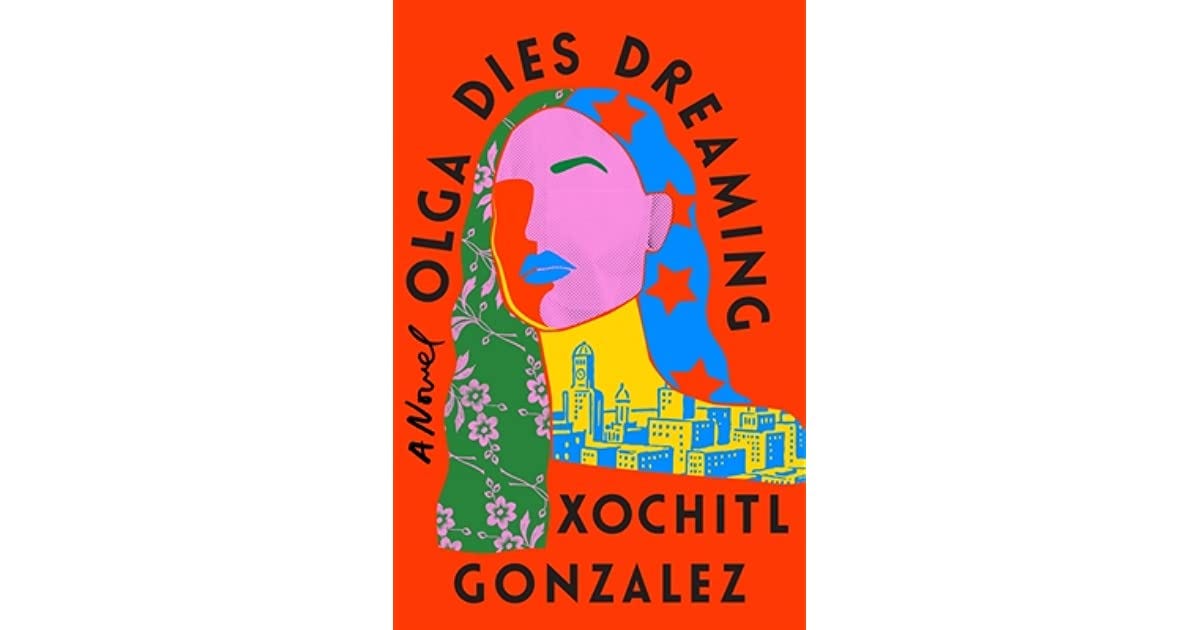
7. La Reina del Sur by Arturo Pérez-Reverte (2002). I had started this book the previous year but left it unfinished (even when I was enjoying it; again, sometimes it’s the circumstances and not the book’s quality.). A thriller about drug trafficking, sex, violence, love, and everything in between. –Perez-Reverte at his best.
8. Harry Potter (complete series) by J. K. Rowling (1997–2007). Similar to The Lord of the Rings: my kids wanted to watch the movies, and completing the books was a requirement first. They liked how the books had more details and characters than the movies. I enjoyed the story again, this time with a different perspective from when I read it initially.
9. Sea of Tranquility by Emily St. John Mandel (2022). This mix of mystery and science fiction was one of my favorite reads this year. It got me stuck to the book until I finished it. I’ll definitely check other works by the author.
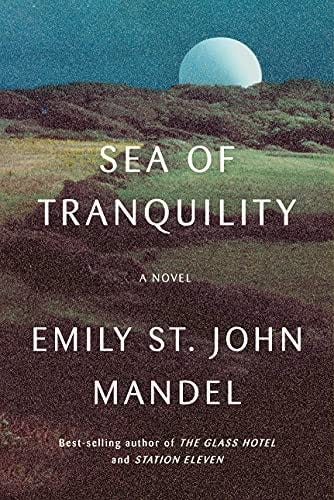
10. Capitan Alatriste (four books in the series) by Arturo Pérez-Reverte (1996–2000). Historical fiction that follows the adventures of Diego Alatriste, a Spanish soldier in the 17th century. Sword fights, conspiracies, assassins… an excellent combination that may not become a classic, but it makes for an incredibly entertaining series of books.
11. La Melancolica Muerte de Chico Ostra by Tim Burton (1997). I read a bilingual version of this book of poems in English and Spanish. Seeing some translations and how they didn’t make much sense was weird… even weird for Tim Burton’s universe, where not everything makes sense anyway. A neat short book, but nothing more.
12. Six of Crows + Crooked Kingdom by Leigh Bardugo (2015–16). The first book’s (Six of Crows) ending feels anti-climatic, and the second one (Crooked Kingdom) doesn’t make sense without the first one’s context. But the two books together make a great novel—a young adult adventure following a group of thieves and misfits.
13. Project Hail Mary by Andy Weir (2021). A person wakes up in a spaceship without memories of who or where he is. As he starts remembering, the crude reality hits: he is the only survivor of this last-hope mission to save the Earth. This book is highly entertaining. I liked it.
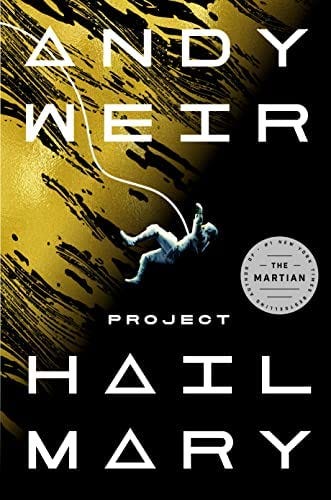
14. The Chronicles of Narnia (three books in the series) by C. S. Lewis (1950–55). I had read all the books long ago; this time, it was with the kids. They initially enjoyed and got into them, but their interest deflated as the series progressed. I may try again or finish some of the books by myself.
15. Revolucion by Arturo Pérez-Reverte (2022). In this novel, a young Spanish engineer gets involved involuntarily –at first, voluntarily later–in the Mexican Revolution. It is not Perez-Reverte’s best novel, but it is highly entertaining, and his characteristic style for action and adventure makes it a good read.
16. Wish You Were Here by Jodi Picoult (2021). I don’t know what to feel about this novel. I enjoyed reading it, but I doubt I’ll reread it. It is predictable, then it happens, and then it twists; then it becomes predictable again, and then it happens again, and then it twists again… At some points, the writing feels like the news or a medical publication, then there’s a twist that explains why… then it happens again, but this time there’s no twist.
17. The Hitchhiker’s Guide to the Galaxy by Douglas Adams (1979). I had read this book before, but it was a long time ago, not the other titles that form the “trilogy in five parts.” I got an edition with all of them and plan on completing it this year.
Non-Fiction
Most of the non-fiction I read were actors’ biographies… Which probably is not a good thing. I enjoy reading biographies, but maybe I should focus on more historical figures.
1. Trejo by Danny Trejo and Donal Logue (2021). I was gladly surprised by this biography. I had seen Danny Trejo in different movies and was curious about the book, but I didn’t expect much, to be honest. It was an exciting treat: a real story of “Crime, Redemption, and Hollywood,” as the book’s subtitle calls it.

2. Icebound by Andrea Pitzer (2021). The real story of sea explorers in the 16th century. The book is well-researched and provides excellent insights into Barents’ expeditions. I found it a bit disappointing that it’s not novelized, and sometimes it feels “hermetic,” more like a disconnected copy-paste from the sailing log than an actual story.
3. Across That Bridge by John Lewis (2017). I liked the graphic novel March by John Lewis and Andrew Aydin (2015–17), so I decided to listen to the audiobook. Many points and stories are the same, but it didn’t feel bad. It was worth it.
4. Moonwalking with Einstein by Joshua Foer (2011). The curious story of the author’s path to becoming a memory master. The book is the journey and not an explanation of how to achieve it (although there are some tips and tricks along the way). Different and entertaining.
5. Tough by Terry Crews (2022). After the success of Danny Trejo’s biography, I decided to try Terry Crews’. It was not the same. While getting insights on the industry backstage was fun, I didn’t find the story as compelling or engaging as Trejo’s.
6. Half the Sky by Sheryl WuDunn and Nicholas Kristof (2008). This book was insightful. I have heard some quotes and numbers pulled from it, and I was curious to check it. Some conclusions seemed contradictory, but it was good overall.
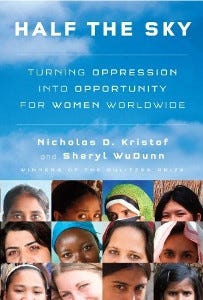
7. Canada by Mike Myers (2016). This was a different biography, with a big emphasis on the history and the surroundings and not only on the person. Add behind the scene access to SNL, stand-up and improv comedy groups, and a life in Hollywood, and it made for a great story. I enjoyed and listened to it twice (it was an audiobook).
8. Black Klansman by Ron Stallworth (2014). Can a Black man infiltrate and become a member of the KKK? Ron Stallworth did it and told the story in this biography. I listened as an audiobook, and the fact that the author was also the reader gave it a closer and more personal touch.
9. Cosmos by Carl Sagan (1980). Cosmos is a science classic that has aged well. Yes, some things are outdated, but considering how much science has advanced and all the discoveries in the past four decades, it still holds up well.
10. Born a Crime by Trevor Noah (2016). This autobiography of Trevor Noah was read by Trevor Noah himself (it was another audiobook). A roller coaster of emotions, adventures, and laughs. Lots of laughs. Even during some dark times.
11. Number One Walking by Steve Martin and Harry Bliss (2022). This could have been in the next section because it is a collection of cartoons and short comic strips telling some personal stories. I liked the cartoons and the humor, but it felt slightly downer. I expected more stories and more depth.
Comics/Graphic Novels
I read a good number of comics and graphic novels. In this case, I won’t list the one-shots or the shorter ones (e.g., Asterix tras las huellas del grifo was a complete story but barely 48 pages.)
1. Maus by Art Spiegelman (1980). I have read this graphic novel once a year for over a decade. This year’s reread was especially sweet considering all the controversy about the book in the school libraries. A book worth banning is a book worth reading. This one is even more so.
2. Incognegro by Mat Johnson and Warren Pleece (2008). I had read the first part of this graphic novel, and this time I read both parts. (they are not related.) A light-skin Black man passes as a white man to investigate crimes against Black people. It is catchy.
3. Something is Killing the Children (complete series) by James Tynion IV (2019–2022). This is one of the best new comic series I’ve read recently. A horror story about monsters, a mysterious girl, and a secret society with dubious intentions that fights the monsters. Great story, great back story, great art… it has it all.
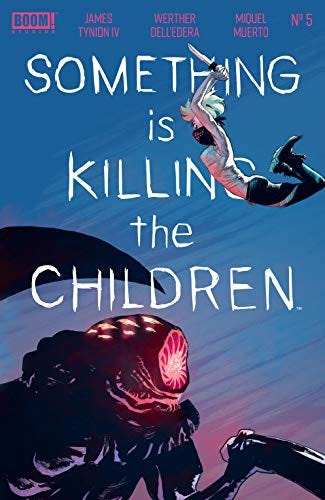
4. El Tesoro del Cisne Negro by Guillermo Corral and Paco Roca (2018). I want to say this is an adventure book, but it’s more about the “bureaucracy behind the adventure.” Yet, the story is exciting and will bring memories from recent diplomatic battles between the Spanish government and some American treasure hunters.
5. Ghost World by Daniel Clowes (1993–97). I have mixed feelings about this one. I get many aspects of the story and the characters, but I miss many others. I don’t know how much has to do with me growing up in Spain instead of the USA and missing pop culture references.
6. Un Petit Livre Oublie Sur un Banc by Jim and Mig (2014). The only book in French I read this year. I read book one a few years back but had never completed the story. It is a short “romantic mystery” about a young woman that finds a book with a cryptic message and becomes obsessed with finding the author.
7. Kingdom Come by Alex Ross and Mark Waid (1996). This was a reread. A story about the next generation of superheroes and their clash with the old generation. The art is very different from what we are used to, and it’s a must-read for superhero lovers.
8. Tin Man by Justin Madson (2022). This unlikely friendship between a Tin Man and a troubled teenager was a surprise finding this year. It has some plot holes and is weird toward the end, but it is a lovely gem.

9. Giant Days (complete series) by John Allison (2015–18). This story covers the life of three strangers who meet on the first day of college until their graduation date and farewell. With a touch of humor (and some fantasy), many people can see themselves represented in the main characters and their adventures.
10. Pluto (full series) by Takashi Nagasaki Naoki Urasawa (2003–09). A prequel to Astroboy, this 8-book series was delightful to read, and the art was great too.
11. Nos Llamaron Enemigo by George Takei, Steven Scott, and Justin Eisinger (2019). George Takei’s life story in graphic novel form. From the Japanase-American internment camps to his stardom in Hollywood and beyond. A personal look into some unjust and unfair decisions in the US in the past century.
12. Blacksad: Todo Cae by Juango Guarnido and Juan Diaz Canales (2021). I’m a big fan of Blacksad. I’ve read all their books and loved them (even the ones that didn’t make much sense at the time). And the Disney-meets-crime style is fantastic. The only bad thing about this book: it’s not self-contained. It’s part one (of two, I believe), so it ends abruptly and without resolution.
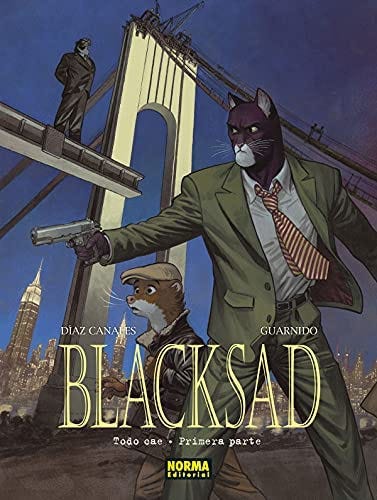
13. Historias Cortas de Satoshi Kon by Satoshi Kon (2012). One of my nephews was reading this book, and I borrowed it. I hate to admit it was entertaining when I read it, but I don’t remember much about it (which should be telling).
14. The Many Deaths of Laila Starr by Filipe Andrade and Ram V (2022). This was an exciting read, but I have to admit it left a bittersweet taste. I like the art and the story, but it felt like a light version of Daytripper by Fábio Moon and Gabriel Bá (2010). The idea is the same: tell the character’s story finishing each chapter with their death… but this title doesn’t have the ending/closure we get in Daytripper.
And for this year…
I’m actively reading some books at the moment:
Tomorrow, Tomorrow, and Tomorrow by Gabrielle Zevin (2022)
The Handmaid’s Tale by Margaret Atwood (1985)
This One Summer by Mariko Tamaki (2014)
And I have some others parked that I want to retake this year, like Good Behavior by Molly Keane (1981). On top of that, I will reread Maus, and we’ll see what this year brings.
One goal for this year: read more non-fiction and technical books… something in which I’m already failing based on the list in this section 😅
Subscribe to my newsletter
Read articles from Alvaro Montoro directly inside your inbox. Subscribe to the newsletter, and don't miss out.
Written by
